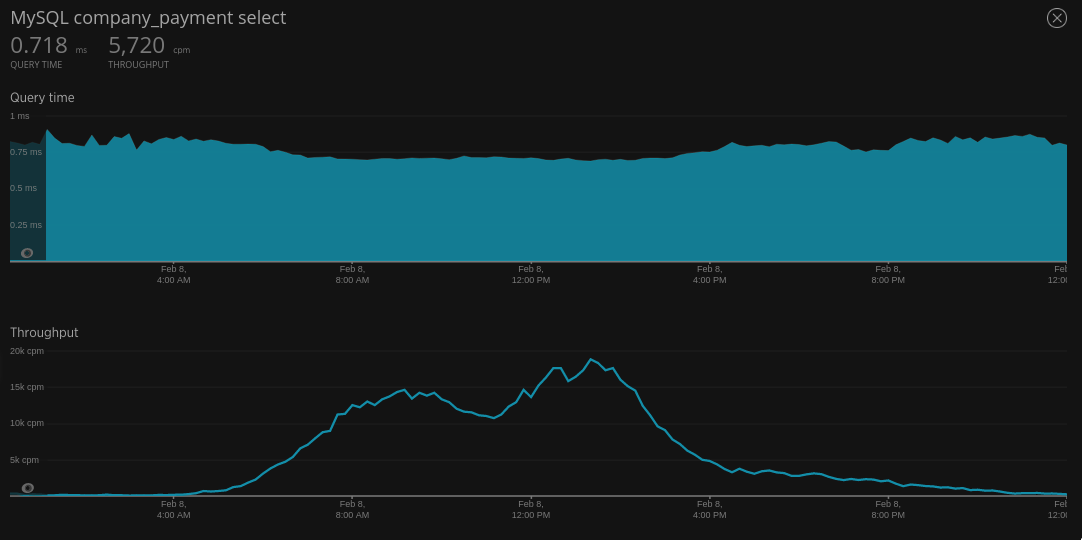Remember to Memoize Your Extension Attributes
TLDR; If your repository is memoizing data, it’s extension attributes should probably be doing the same.
We’ve been prepping our sites for some additional traffic and part of the process has been analysing some of our database calls looking for erroneous queries. The site is based on Magento 2 Commerce with B2B.
One of the tables with the highest throughput was company_payment. A table
containing the allowed payment methods for each company within our application.
Strangely, when looking at the call stack all the calls were being firing after
getting a company entity from the repository. This is odd because almost every
M2 repository class includes memoization for reducing database requests for the
same data within a request. I did see a memoization mechanism when I looked at
class source.
Below is an example of the memoization method commonly used in Magento 2 for repositories.
public function get($entityId)
{
if (!isset($this->instances[$entityId])) {
/** @var Entity $entity */
$entity = $this->entityFactory->create();
$entity->load($entityId);
if (!$entity->getId()) {
throw NoSuchEntityException::singleField('id', $entityId);
}
$this->instances[$entityId] = $entity;
}
return $this->instances[$entityId];I could see the throughput was more than 2x for company_payment compared to
company.


The culprit was hiding in the call stack…
Company payments are added to the company entities as extension attributes. The
after plugin on \Magento\Company\Api\CompanyRepositoryInterface::get does not
include any memoization. Even though the repository was recycling the
previously loaded object the after plugin did not, and was going back to the
database with every call.
My temporary solution was adding a preference for the plugin and memoizing the payment method data per company. It’s a micro-optimization and probably a waste time, oh-well.